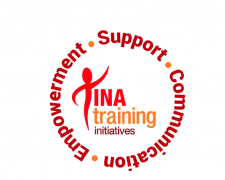We will encourage foster carers to identify effective strategies for enabling children/young people to manage difficult emotions and behaviours which provoke anxiety and distress in others.
The course aims to identify some of the reasons why individuals may demonstrate behaviour experienced by others as challenging and to explore ways to promote responsive, self- regulated and responsible behaviour adopting a positive proactive approach.
We will consider the advantages/disadvantages and likely consequences of adopting a variety of reactive strategies. Participants will be encouraged to recognize their own way of dealing with circumstances which they experience as stressful. We will identify different stages of emotional arousal and look at what might be the most appropriate ways of offering support at different stages of a behavioural crisis.
We will describe a de-escalation routine and suggest ways of encouraging individuals to reflect on past crises. We will discover ways to support individuals to recognize different ways of responding to situations they find difficult.
Aims
- To explore approaches and skills for developing effective interactions when working with children and young people who exhibit challenging behaviours
- To provide an opportunity to discuss these approaches and how they might work for you as a family through a 1–1 follow-up session
- To empower people to support children/young people in managing their own behaviour
Learning Outcomes
As a result of the training participants will
- Engage and practise active listening and de-escalation based interventions
- Gain an understanding as to why people may present with challenging behaviours, including physiological factors (Breakwell 1997 and change cycles)
- Consider and explore own experiences of effectively managing complex interactions
- Have a greater understanding of complex interactions
- Identify positive supporting interventions at different stages of a crisis
- Recognize that we all need coping strategies to help us manage stress
- Understand how to create and maintain an environment where people feel valued and listened to
Programme
- Domestics, Aims, Learning Outcomes, Ground rules, Introductions
- Where behaviour comes from
- What winds you up?
- Relaxation/Confidence/Communication
- Coping Strategies
- Interactional Styles
- Pro-active and Re-active Strategies
- Five stages of emotional arousal
- Attachment Behaviours
- Mentalization
- Avoidant and Disorganized Attachment
- Exclusion/Inclusion
- What do I do next?
- Curing by listening
- Optimising connection/Reducing resistance
- Structure and Routine
- Choice
- Review
- Close
What people say…
‘Enjoyed course very much – very practical and at right level’
‘A very fulfilling day’
‘Very relaxed atmosphere, very knowledgeable, very well organized’
Who is it for?
Foster Carers
For further information please contact:
Tina Thordal – 07815 064710 or e-mail tina@tinatraining.co.uk
Bill Horrocks – 07929 035297 or e-mail bill@tinatraining.co.uk
